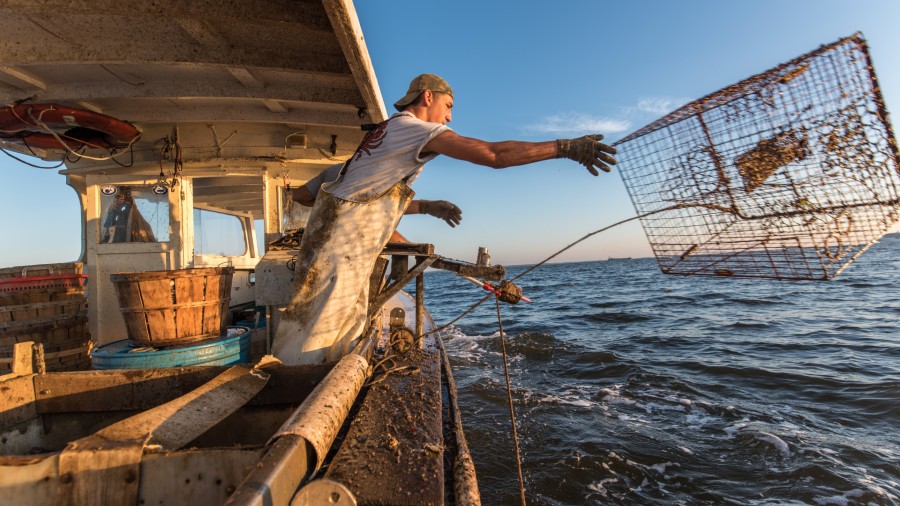Missing Puget Sound crab pots cause estimated 180,000 annual crab deaths
May 10, 2022, 6:20 AM | Updated: 10:22 am

Young waterman throws crab trap off of boat and back into the water. (Photo by: Edwin Remsberg/VW PICS/UIG via Getty Image)
(Photo by: Edwin Remsberg/VW PICS/UIG via Getty Image)
Divers from the Northwest Straits Foundation will soon be going into Fidalgo Bay outside Anacortes to recover lost crab pots.
Jason Morgan, marine programs manager with the Northwest Straits Foundation, says it’s estimated that 12,000 crab pots are lost in the Puget Sound each year, trapping and killing 180,000 crabs.
Potential ‘irreparable damage’ to Puget Sound orcas over alleged illegal salmon hatchery expansion
“When a crab pot becomes lost, the issue with it is it remains on the seafloor and it continues to do what it’s designed to do,” Morgan said. “It catches crabs with no one there to harvest them.”
Crab pots are square-shaped or circular cages that trap crabs underwater. When they get separated from their lines and remain on the seafloor, they continue to trap crabs, yet those crabs are never brought to the surface by the crabbers.
When the Northwest Straits divers did removals in this same area in 2018, they removed nearly 500 crab pots.
The other major entity that does crab pot recovery is the Washington Department of Fish and Wildlife (WDFW). Donald Velasquez with the WDFW says they usually recover 1,600 shellfish traps each year, some of which are crab.
Morgan says the main reason for lost crab pots is user error. 200,000 crab pot licenses go out each year, allowing each person to have two pots on the water. About 30% of those licenses are new licenses, so there are a lot of new people going out without experience.
Boycotting Russia? Watch out for king crab, says Seattle fishmonger
Still, there is no penalty in this state for losing your crab pot. While other states require a metal tag with user information to go on the trap, Washington only requires the crabber to write this on the buoy. The state encourages people to self-report if they lose a trap, but there is no requirement to do so.













